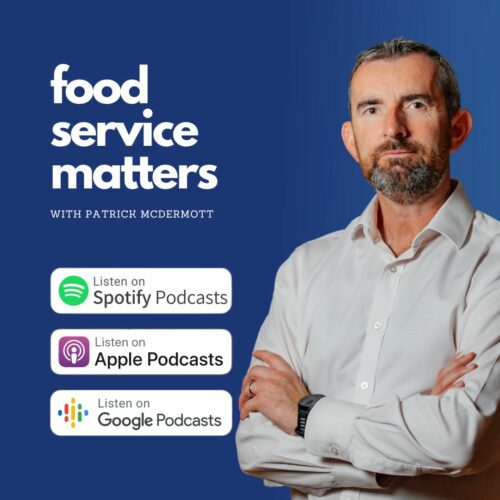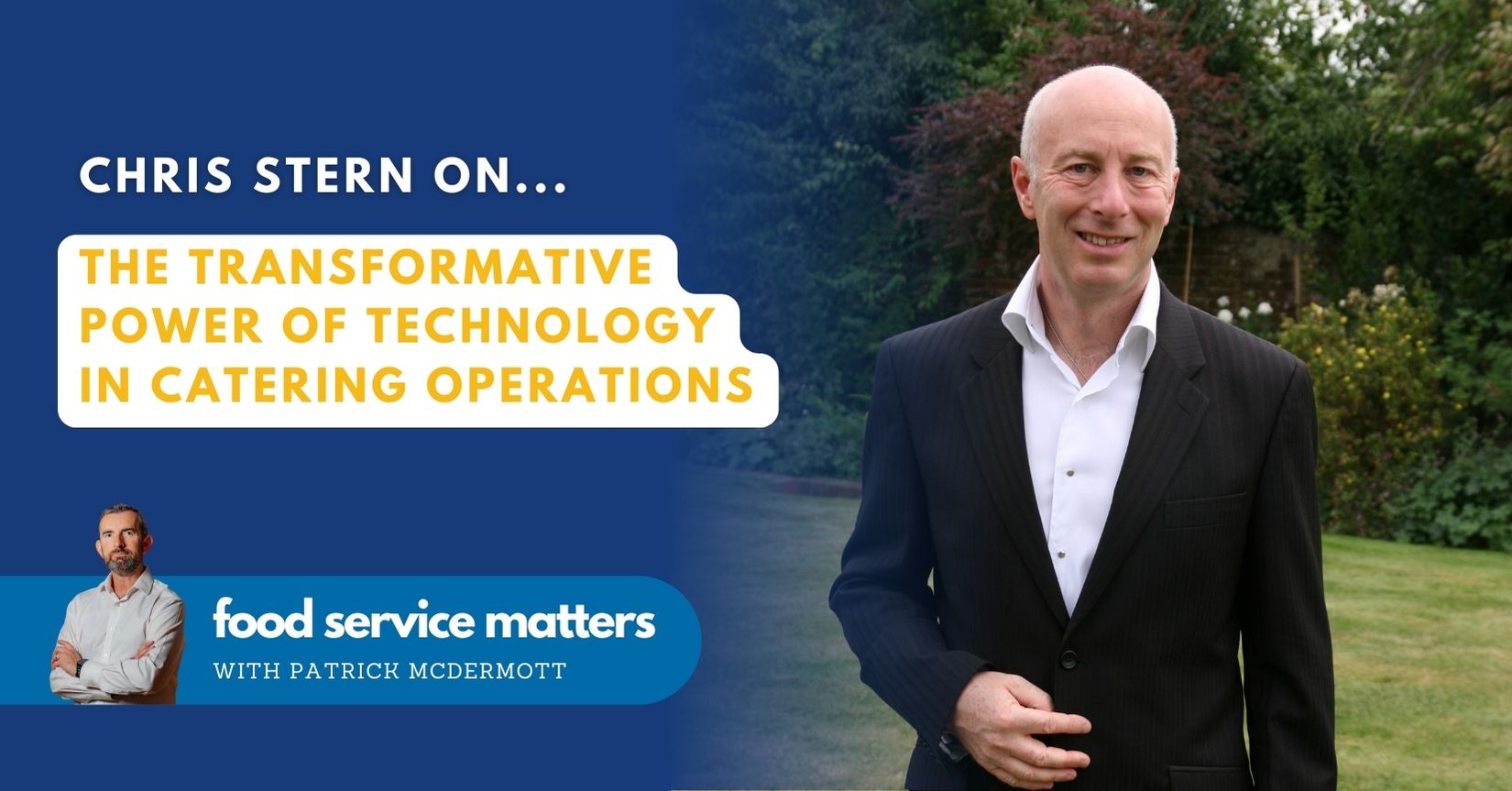In recent years, technology has revolutionised the catering industry, altering how businesses operate internally and how they interact with their customers.
In Season Two, Episode Five of the Food Service Matters podcast, host Patrick McDermott talks to Chris Stern, Founder and Managing Director of Stern Consultancy, a specialist catering consultancy that helps clients in the UK and Europe improve their workplace food service operations and offerings.
In this article, we share Chris’ insights into how technology is reshaping catering operations, both in the back-of-house and overall customer experience.
Streamlining Back-of-House Catering Operations
Technology has become an indispensable tool for improving efficiency in kitchens. Advanced software systems like DigiTally not only provide real-time data on ingredient usage and stock levels but also allow for better tracking of food waste and costs.
Another benefit is allergen management, with digital systems now able to automatically calculate and display this critical information at the click of a button.
Chris notes, “Technology has become essential because of things like Natasha’s Law for allergen and nutrition data. We have to use it to give us that information, so we might as well use it for wastage and costing too.”
These smart features enable food service businesses to maintain more streamlined operations and augment food safety for their customers.
It also plays a huge part in staff recruitment, as younger talent overwhelmingly prefers employers who demonstrate authentic ESG in their operations.
Improving the Customer Experience with Technology
Chris points out that although technology significantly enhances back-of-house operations, it’s the front-of-house that really affects the customer experience and how they interact with catering services.
Self-scan kiosks and mobile ordering apps have become increasingly common, enabling faster service and reduced wait times. AI-powered systems are also making waves in the industry. Chris describes innovative solutions like Autocanteen and Deligo, which can automatically scan and identify food items on a tray, streamlining the checkout process. He also highlights a system called Oscar that enhances sustainability efforts by guiding customers on how to properly recycle their food waste.
Technological advancements such as these contribute to a more seamless and enjoyable dining experience for customers.
Overcoming Challenges in Adopting New Technologies
While there are clear benefits to technology in catering, implementing these systems can be challenging.
“There’s still a way to go, particularly for the vast majority of B&I sites across the UK with small kitchen teams of just two or three people,” remarks Chris. “They often haven’t got the time or skill to use tech to its maximum advantage” – which is why it’s crucial to remember that technology is there to support, not replace, people, as well as to make their jobs easier, not more complicated.
Training and ongoing support are essential. Chris suggests a practical approach for smaller kitchens, explaining, “What I want my caterer to do is use the tech themselves, and then say to the chef, ‘You’ve got £10,000 a week to spend on food. I know that because I’ve analysed the tech and I’ve got all the data.’ Keep it as simple as that.”
Caterers should also consider which kind of functionality would most benefit their business, ideally opting for a best-in-breed tool like DigiTally, rather than a ‘one-system-fits-all’ solution.
As catering businesses continue to evolve, embracing technological advancements will be key to staying competitive and meeting the changing demands of customers. However, it’s important to remember that technology should complement, not replace, the human element in catering. By striking the right balance between technological innovation and personal service, businesses can create truly exceptional dining experiences for their customers.
To listen to Patrick’s full interview with Chris Stern, check out the Food Service Matters podcast on Spotify, Apple Podcasts or Google Podcasts.
Patrick is CEO of DigiTally, which is playing an increasingly important role as an intuitive and interconnected simple food service software that helps save time, increase margins and combat food waste. Keen to learn more? Let’s talk! Book a 30-minute call with Patrick and get your demo set up today.




